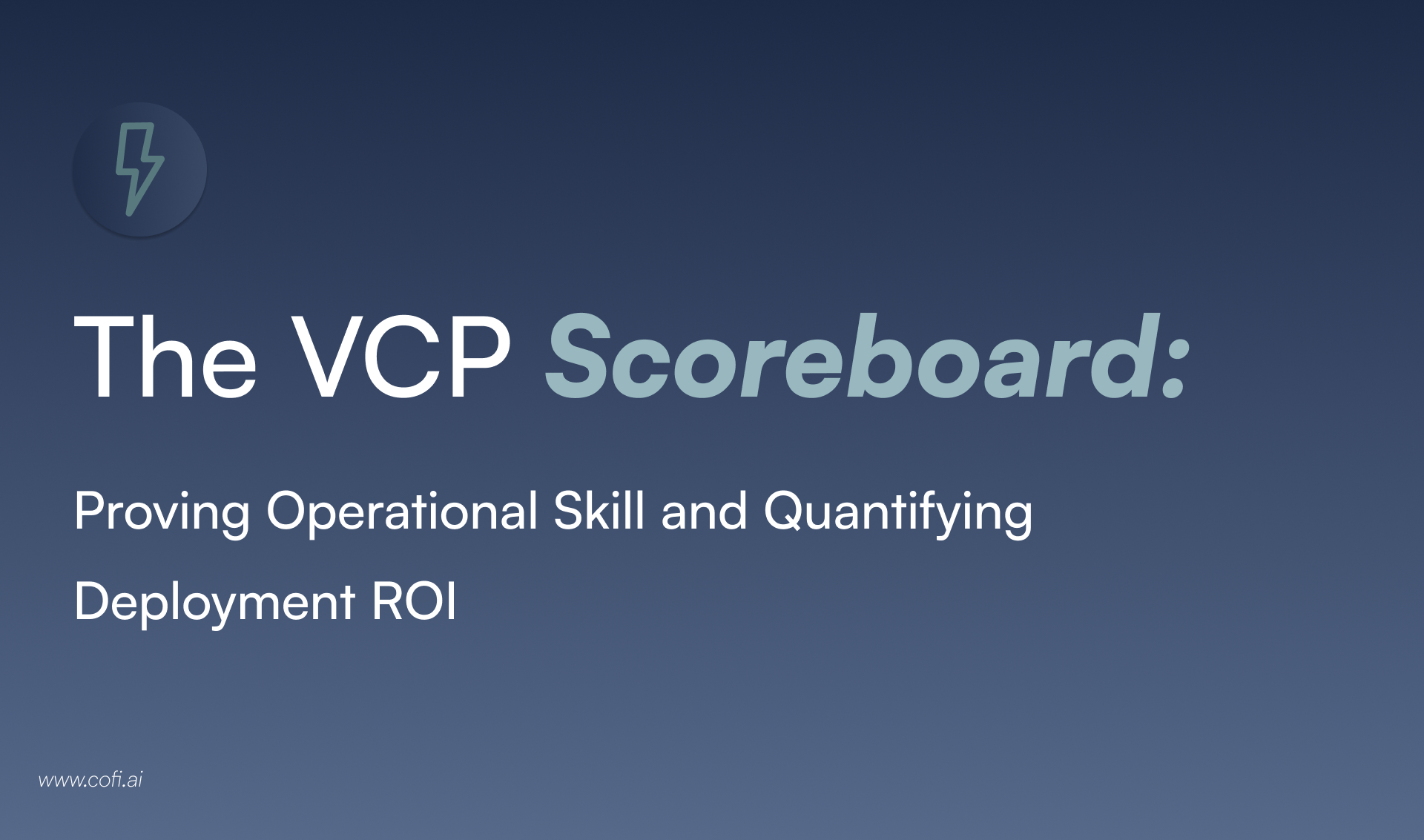
VC firms need better ways to monitor portfolio companies. Traditional reporting is slow and unreliable. This blog shows how real-time CRM and sales data offer a strategic advantage, improving visibility, reducing friction, and strengthening founder relationships.
Modernizing Portfolio Monitoring: The Value of Direct CRM Data Access for Venture Capital Firms
VC firms need better ways to monitor portfolio companies. Traditional reporting is slow and unreliable. This blog shows how real-time CRM and sales data offer a strategic advantage, improving visibility, reducing friction, and strengthening founder relationships.
Download NowWatch NowIntroduction
Venture capital firms thrive on information. During the portfolio monitoring stage, VCs traditionally rely on periodic reports, spreadsheets emailed by founders, and quarterly review meetings to gauge a startup’s health. This conventional approach is often manual and fragmented, leading to delays and blind spots. However, modern technology is reshaping this process. By integrating directly with a portfolio company’s CRM and sales systems (e.g., Salesforce, HubSpot), investors can access live data streams of key performance indicators (KPIs). This whitepaper explores the conceptual value and benefits of giving VC firms direct access to portfolio company CRM data, highlighting how real-time integration improves visibility, speeds up insights, reduces friction, enhances forecasting, and strengthens alignment between founders and investors.
The Traditional Approach and Its Challenges
In the past, portfolio monitoring heavily depended on founders manually compiling updates. These might include Excel spreadsheets of pipeline metrics, PDF slides of quarterly financials, or ad-hoc email summaries of sales progress. Such methods, while common, are labor-intensive and highly prone to errors. Different companies report metrics in different formats and at varying frequencies, making it hard for VCs to consolidate information. Often data is out-of-date by the time it’s shared, limiting the VC’s ability to react swiftly. This fragmented approach can result in blind spots and issues in a portfolio company might go unnoticed between reporting cycles, or positive trends might not be capitalized on promptly.
Key challenges of the traditional, manual reporting model include:
- Delayed Insights: KPIs lack real-time updates, meaning VCs see performance weeks or months late.
- Data Inaccuracies: Manual data entry and multiple file versions raise the risk of errors and miscommunication.
- Reporting Friction: Founders spend valuable time preparing reports, and VCs spend time chasing updates or reconciling different formats.
- Fragmented Visibility: Each company provides data in its own siloed report, hindering a holistic view across the portfolio.

Together, these issues underscore the need for a more efficient, data-driven monitoring approach.
Embracing Data Integration with Portfolio Company CRMs
Direct integration with portfolio company tools is a game-changer for venture investors. In essence, integration means that the VC firm sets up a secure data connection (via APIs, pre-built connectors, or data-sharing platforms) to pull defined metrics straight from the startup’s systems – for example, syncing with a company’s Salesforce or HubSpot CRM to fetch sales and customer metrics automatically. Many high-growth startups already use leading CRM platforms like Salesforce and HubSpot to track their sales pipeline, customer engagements, and revenue. By tapping into these existing data hubs, VCs can eliminate the need for separate, manual reporting. Instead of waiting for a founder’s monthly email, the VC team could, at any time, open a dashboard that reflects the latest bookings, lead volumes, conversion rates, or other KPIs that update in real time from the company’s CRM.
Crucially, this approach remains tool-agnostic and flexible. It’s not about mandating a specific software across all portfolio companies, but rather leveraging whatever systems the startup already uses as sources of truth. Modern portfolio monitoring platforms and integrations serve as a bridge – aggregating data from various sources (CRM, accounting software, analytics tools) into one view for investors. The result is a single source of truth for portfolio KPIs that both the founder and the investor can trust. A modern portfolio management solution brings advantages like real-time data access, allowing VCs to track portfolio company KPIs seamlessly. In practice, this means live dashboards replacing static reports. For example, a VC firm might have a portal where each portfolio company’s key metrics are displayed and updated continuously. Some VC firms already provide their limited partners with similar portals for fund performance – the same concept can apply between VC and startup, fostering transparency. By integrating data systems, VCs move from a reactive stance (looking backward at last quarter’s results) to a proactive stance (monitoring current performance and forward-looking indicators).
Key Benefits of Direct CRM Data Access for VCs
.jpg)
Direct access to portfolio companies’ CRM and sales data offers several compelling benefits during the monitoring stage. Below, we outline the key advantages and why they matter for venture capital firms:
Improved Data Visibility and Transparency
When VCs have a direct data feed from a startup’s CRM, data visibility increases dramatically. All relevant metrics are centralized in one place, providing an up-to-date window into company performance. This level of transparency means investors are not just hearing curated highlights but can see the raw numbers behind growth and sales. It creates a “single version of the truth” for both the founder and the VC. One immediate outcome is enhanced confidence in the data – since it’s coming straight from the source, there is less worry about accidental misreporting or omissions. Real-time data sharing centralizes information and improves transparency across portfolio management stakeholders. In fact, automating KPI tracking and reporting helps keep everyone informed without relying on highly error prone manual updates. By having visibility into metrics like lead flow, conversion rates, monthly recurring revenue, or churn as they evolve, VCs can trust that they are working with current and consistent data. This transparency strengthens trust as well: founders signal confidence by sharing live data, and investors reciprocate by basing discussions on facts rather than estimates. Ultimately, greater data visibility means fewer surprises – both good and bad – since both parties continuously see the company’s trajectory in real time.
Faster Insights and Better Decision-Making
Direct data access enables faster, data-driven insights. Rather than waiting weeks for a report, VC firms can analyze performance at any given moment. This immediacy is crucial for agile decision-making. For example, if sales suddenly spike or dip, the VC can notice and discuss it with the founder right away, seizing opportunities or addressing issues before they escalate. With integrated dashboards, analysis that once took hours of assembling spreadsheets can happen instantly. Real-time metrics equip VCs to make informed decisions on the fly – whether it’s adjusting a company’s growth strategy support, planning a timely follow-on investment, or reallocating internal resources to assist a struggling portfolio company. Moreover, analytics tools layered on top of CRM data can provide predictive insights. Patterns and trends in the sales pipeline might indicate future revenue trajectories or market demand shifts. A robust CRM with analytics can offer predictive insights on portfolio performance and enhance decision-making quality. In short, direct data access means venture investors are always working with the latest information, leading to quicker recognition of what’s working or what’s not, and enabling evidence-based conversations with founders rather than gut feeling or outdated data.
Reduced Reporting Friction and Operational Overhead
Automating the flow of information reduces friction for both VCs and founders. Traditionally, compiling reports is a time-consuming task for startup teams – time they could spend on product or sales instead. From the VC’s side, chasing down updates and re-formatting different files is equally cumbersome. By integrating systems, much of this operational overhead disappears. Data sharing becomes part of the routine (or completely automated) rather than a special project every month or quarter. A digital portal or integration can continuously pull data, meaning no more emailing files back and forth or worrying about version control. This not only saves time but also standardizes the data format and quality. In effect, the VC firm can have a consistent dashboard for all companies, even if each company uses a different CRM, because the integration can map the fields to a standard set of metrics internally. The benefit here is twofold: founders spend less effort on investor reporting (reducing stress and potential for error), and investors get more reliable data without administrative hassle. Additionally, when data collection is streamlined, compliance improves – portfolio companies are more likely to regularly share data when it’s automated, solving the consistency issue that plagued manual methods. All of this means the relationship is focused on insights and actions rather than paperwork. In summary, direct CRM data access cuts out the redundant steps in reporting, making the monitoring process more efficient, accurate, and painless for everyone involved.
Better Forecasting and Proactive Planning
Access to live sales and customer data also unlocks superior forecasting capabilities. Venture capital is inherently forward-looking – VCs want to anticipate where a company is headed, not just where it stands today. With continuous CRM data, investors can perform more accurate trend analysis and forecasts. For instance, by examining the current sales pipeline in Salesforce (deals in various stages, their values and probabilities), a VC can project next quarter’s revenues with more confidence, or identify early if the company might fall short of targets. This allows both the investor and founder to adjust plans proactively – perhaps ramp up marketing if the pipeline is thin, or conversely, prepare for scaling operations if sales are ahead of plan. Real-time data also feeds into fund-level planning for the VC. If multiple portfolio companies show signs of rapid growth, the firm might reserve additional capital for follow-ons; if the data indicates some companies are facing headwinds, the VC can prepare contingency plans or bridge financing. Essentially, integrated data turns portfolio monitoring into a form of ongoing due diligence, where the VC continuously updates their understanding of a startup’s outlook. Having up-to-date metrics is invaluable for forecasting. Data-rich discussions replace guesswork – a far cry from the old days of reviewing stale figures and then trying to extrapolate. As a result, venture investors can advise more effectively on strategy. They can help founders set realistic goals and milestones grounded in data, and they can align timing for key decisions (like expanding to new markets or raising the next round) with what the numbers indicate. In summary, direct access to CRM and sales data gives VCs a kind of early warning system and crystal ball – it illuminates the path ahead so they can navigate and support their portfolio companies with foresight.
Stronger Founder–VC Alignment and Trust
Perhaps one of the most overlooked but important benefits of data integration is the positive impact on the relationship between founders and investors. Sharing live CRM and sales data requires a foundation of trust and a mutual understanding that both parties are working toward the same goals. When done correctly, it fosters a sense of alignment: the VC and the founding team are literally looking at the same dashboard and numbers, which encourages a team mentality. This transparency can lead to more objective, focused conversations. Instead of debates over what the numbers are, discussions can shift to what the numbers mean and how to improve them. Founders no longer feel they must manage the data or presentation to investors; they can trust that the raw performance speaks for itself, and spend time collaborating on strategy. Likewise, investors who have insight into real-time data can temper their asks and expectations to be more in line with the reality the founder is facing, making them more empathetic partners. Direct data access also reduces the communication gap. VCs won’t need to pepper founders with frequent info requests, because much of the information is already at their fingertips – this lightens the reporting burden and gives founders more breathing room to execute. Meanwhile, when an issue does arise in the data, the VC can reach out in a timely and informed way, showing the founder that the VC is actively engaged and supportive. Leveraging CRM analytics and data not only enhances decision-making but also helps foster stronger investor–startup dynamics. In essence, a culture of openness around data helps transform the VC-founder relationship into a true partnership. Both sides benefit: the startup gets a well-informed ally who can provide help when needed, and the VC gets a trustworthy window into the company, leading to fewer surprises and a smoother journey toward the shared objective of growth and success.
Conclusion and Key Takeaways
Direct access to portfolio company CRM and sales data represents a modern, more effective approach to venture capital portfolio monitoring. By moving away from static reports and embracing real-time data integration, VC firms can greatly enhance how they support and oversee their investments. The conceptual value is clear – richer insights, less friction, and stronger partnerships. Importantly, this is not about micromanaging founders or drowning in dashboards; it’s about streamlining the flow of information so that both investors and entrepreneurs can make better decisions, faster. Any VC firm, regardless of size or focus, can begin to apply these principles by leveraging the tools their portfolio companies already use and creating secure, respectful data-sharing agreements. The result is a win-win: founders spend less time producing reports and more time growing the business, while investors gain timely visibility and can deliver more value.
Key takeaways and next steps for VC teams:
- Embrace Real-Time Visibility: Leverage integrations with popular tools (CRM, financial software, etc.) to get live updates on key metrics, instead of waiting for quarterly summaries. This ensures you’re always working with current information.
- Eliminate Manual Reporting Pain: By automating data collection, you reduce reporting burdens on portfolio companies and minimize errors. Many firms have seen dramatic efficiency gains by switching to automated dashboards.
- Focus on Insights, Not Data Chasing: With data at your fingertips, reallocate time saved toward analyzing trends, identifying risks, and brainstorming strategic guidance for your startups. Faster access to data means you can be proactive in offering help or making decisions when it counts.
- Strengthen Founder Relationships through Transparency: Use the data as a collaboration tool. Encourage an open-data policy where appropriate, making sure founders understand that transparency builds trust and alignment, not oversight. Shared dashboards can serve as a common reference point for honest, productive conversations.
- Start Small and Scale Up: You don’t need to integrate every system at once. Pilot an approach with one or two data points (for example, monthly recurring revenue from the billing system or pipeline status from the CRM) and expand as comfort grows. Choose metrics that matter most to both you and the founders, and ensure data sharing is secure and mutually agreed.
In conclusion, modernizing portfolio monitoring through direct CRM and sales data access allows venture capital firms to be more informed partners. It replaces friction with efficiency and opacity with clarity. For VCs looking to stay ahead in an increasingly data-driven investment landscape, investing in these integrations and processes is not just about convenience – it’s about unlocking better outcomes for both the fund and its portfolio companies. By having a finger on the pulse of each business in real time, VCs can genuinely live up to the promise of added value beyond capital, guiding their startups with sharper insight and stronger alignment toward success.
If you would like to learn more about how real-time CRM data can significantly improve the portfolio monitoring process for VC firms, please contact us at cofi.ai.
.png)











